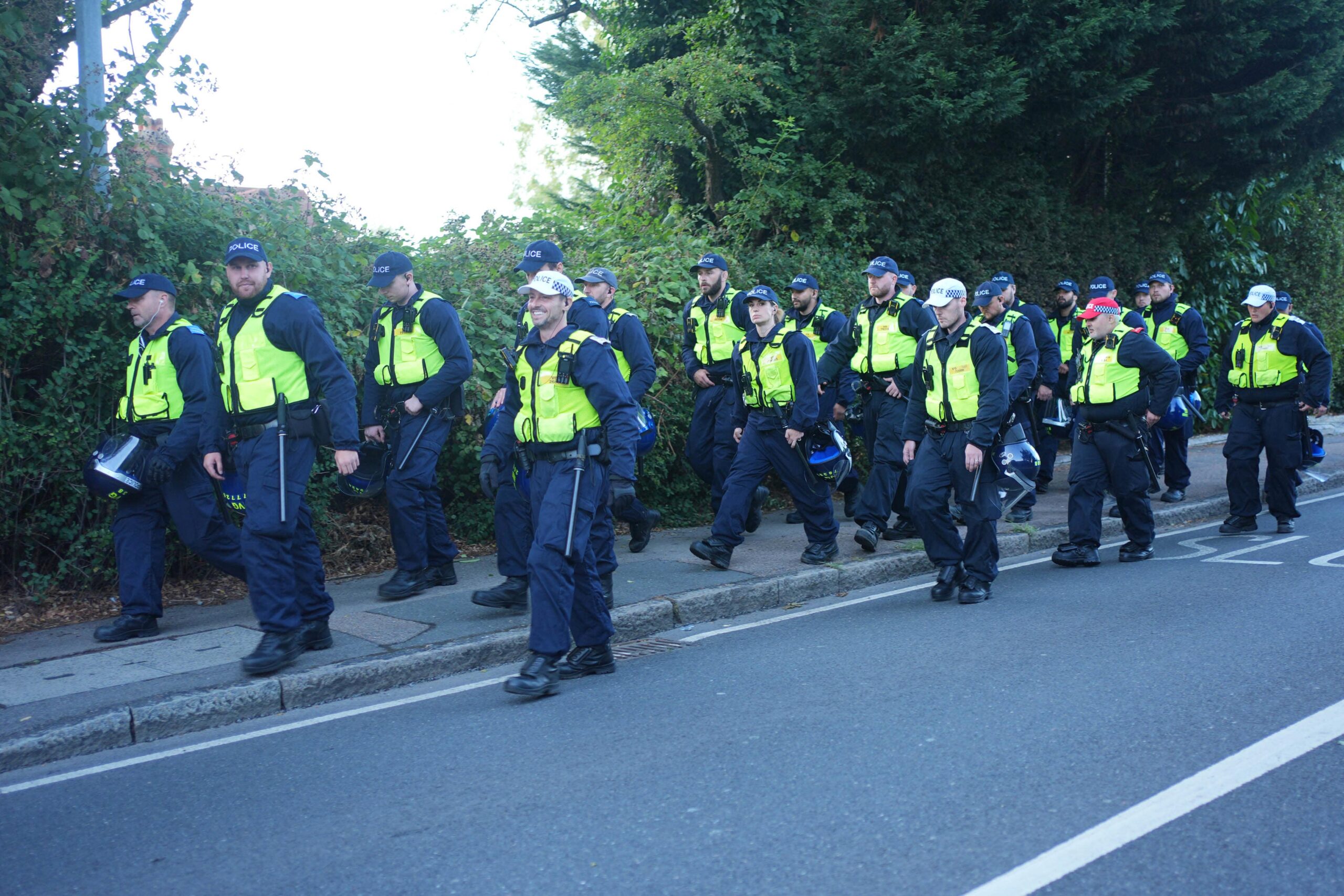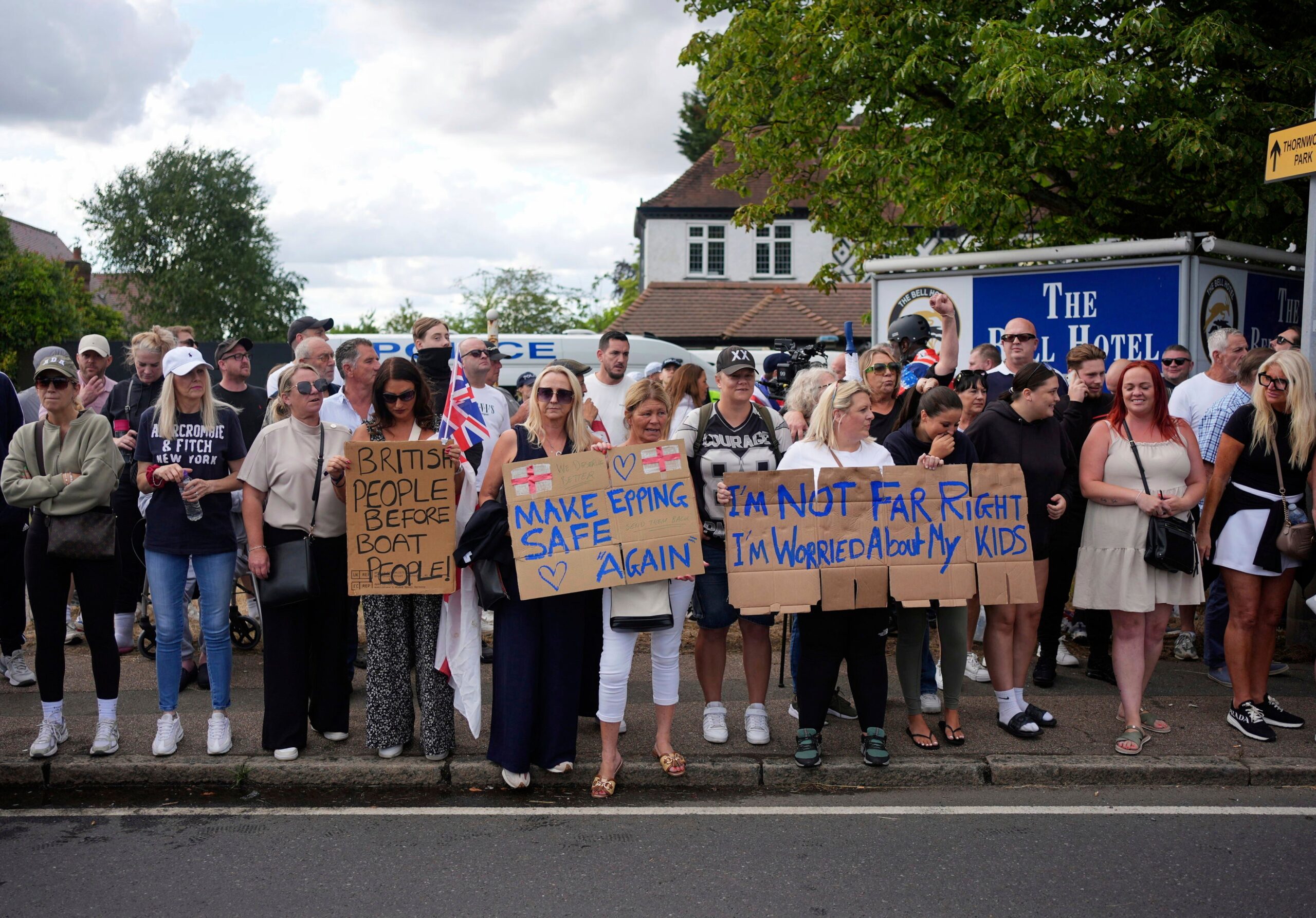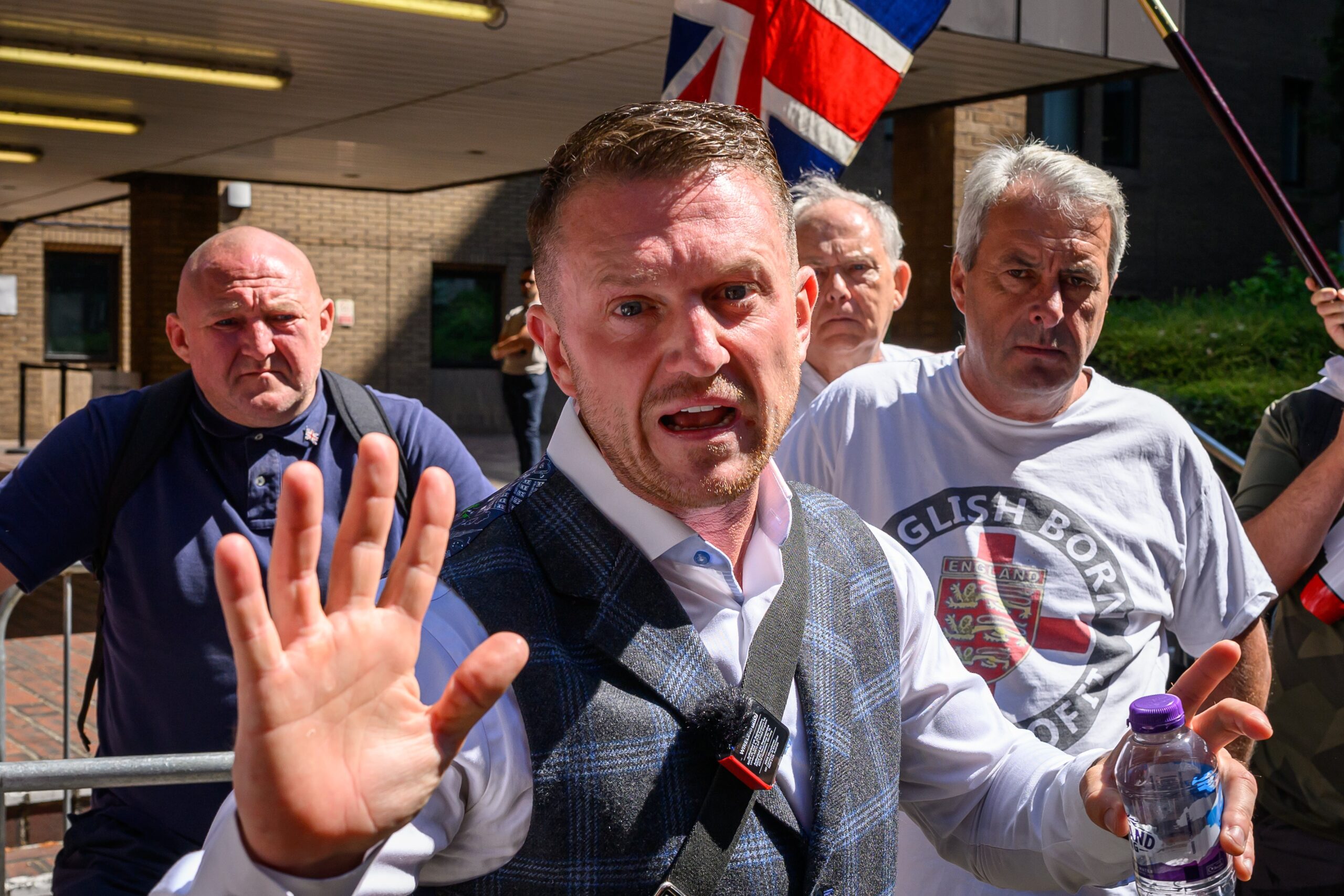At around 5.30pm on 7 July, Essex Police officers were called to the High Street in Epping after receiving reports that a man was behaving inappropriately towards a teenage girl.
Hadush Kebatu, 38, an asylum seeker from Ethiopia, allegedly tried to kiss a schoolgirl as she ate pizza and he has since been charged with three counts of sexual assault.
But news that he had only arrived in the UK eight days earlier via a small boat quickly took hold on social media, sparking a series of protests that turned violent and thrusting the historic Essex town into the heart of an anti-immigration row.
What started as a group of locals voicing their grievances outside the Bell Hotel, which is believed to house asylum seekers, has now escalated into what has been described as a “powder keg situation”, with fears it could prompt a wave of riots across the country, similar to those seen last summer.

In the past two weeks, prominent leaders in neo-Nazi groups and far-right organisations have been accused of exploiting the situation by pivoting demonstrations towards violence, with some demanding a “national call for action”.
Their weapon of choice? Social media, which the far-right have long been known to harness as a tool to spread fear and hate.
Several right-wing activists have rebranded themselves as citizen journalists or political commentators, helping them accrue millions of followers in the UK and across the globe.
Joe Mulhall, of the charity Hope Not Hate, said that is dangerous at a time when misinformation online spreads quickly and can whip up tensions.
“It’s deeply concerning that a rumour or allegation can spread so quickly and take hold. Last year in Southport, misinformation from influencers like Andrew Tate spread like wildfire about the ethnicity and nationality of the perpetrator of the awful murders.
“When misinformation spreads, it can legitimise existing biases and as a rumour or allegation takes hold, things can quickly move offline.”

Among those who have set up the private Facebook page Epping Says No, which advertises the protests, are three members of the group Homeland. Founded in 2023 after splitting from neo-Nazi group Patriotic Alternative, it has been described as the largest fascist group in the UK.
This week, one of its prominent members has shared several videos of the protests on social media, and has called for future action, urging: “If you live in an area that has a hotel occupied by asylum seekers, start organising.”
Members of other groups, including former neo-Nazi terror group Combat 18, the British National Party and the Patriots of Britain, have also been spotted at the demonstrations.
Mr Mullhall warned that with over-worked and over-stretched police forces, racist and anti-immigration rhetoric online can often fall under the radar. He said the UK “needs to be ahead of the curve” to clamp down on this activity.

“Tracking these comments and the individuals responsible is tricky,” he said. “The far-right are no longer divided into neat groupings but are instead thousands of people posting videos outside migrant accommodation, posting rumours and making comments online.
“Gone are the days when the police or social media companies can simply deplatform a particular group to resolve this issue.”
Since Elon Musk’s takeover of X, formerly known as Twitter, the platform has changed significantly, with the Tesla founder reportedly tweaking its algorithms and removing its fact-checking mechanisms.
This included turning the platform into a pro-Maga Trump echo chamber in the run-up to last year’s US presidential elections, and reinstating previously banned figures such as Tommy Robinson and Katie Hopkinson.
For Hope Not Hate, it has become a visible and concerning trend to see US figures commenting on UK politics and societal issues, boosting far-right voices, such as those of anti-Islam activist Robinson, who has hinted he will be in attendance at an Epping protest on Sunday.
Mr Mullhall said: “The far right has changed dramatically and ironically, knows no borders. What we’re seeing now is key figures emerging online. We’re no longer looking at organisations but key people who emerge during a time of crisis.

“The far right is international, they move around and they move in pacts and trying to find any weakness. They have no formal leader; there’s no single leader, it’s like they’re a group of fish that move around the internet exploiting situations.
“It is no surprise that we’ve seen a rise in far-right activity in the UK, US and Europe – these groups and ideas are interconnected.”
Dr Karen Middleton, from the University of Portsmouth, who has been an expert witness in the UK government’s inquiry into social media, misinformation, and harmful algorithms, said the recent protests in Epping were “in many ways, a continuation of the riots from last year”.
She said: “Sensationalist and polarising content gathers more clicks, gathers more engagement, so there is a systemic incentive for spreading misinformation online.”
She urged large social media platforms to go much further in addressing the spread of misinformation, but warned this was not about limiting free speech.
“This is about taking responsibility for published information that is online that goes to a large number of people, and is very often spread by people with high profiles,” she said.
A spokesperson for the National Police Chiefs Council (NPSCC) said communities had a part to play in halting the spread of misinformation and urged people to “carefully consider” what they read, share, and trust online to avoid stoking tensions.
“We would encourage the public to access formal authorities for accurate information. The spread of disinformation and misinformation by individuals or groups can significantly contribute to community tensions and has real-world implications. We all have a responsibility in this respect, and relevant criminal law applies to online actions,” they added.
They also called on social media companies to be vigilant to the spread of false information and to “ensure harmful content is detected, challenged and removed in a timely manner”.
